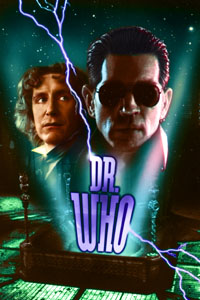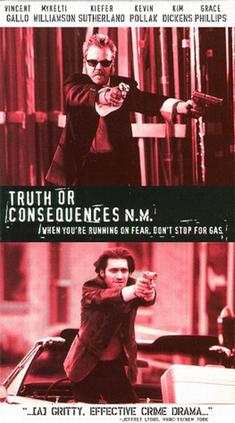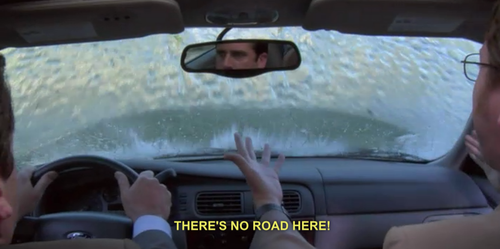The Simpsons used to have a rule that every season had to have one episode that pushed the boundaries of what a Simpsons episode should be. Personally, I think every show should have a rule like this. Not every episode should be an experiment, but once a season I think every show should push themselves and see if they can go somewhere very different creatively. "Listen" was probably Steven Moffat's most obvious attempt at an experimental episode, as it really was, in every way, a complete deconstruction of a Doctor Who episode. It took the most basic concept of a stereotypical Doctor Who plotline, broke it down to its basic components, and reassembled it in a very different way that challenged the very premise of what this show is and what it's about. Perhaps it was Steven Moffat's confidence after three seasons as showrunner that gave him the confidence to push the boundaries of the show's structure. I would argue that there are a number of moments when Moffat deconstructed traditional narratives that were not necessarily looked at as "experimental" episodes, such as "A Christmas Carol" and "The Day of the Doctor," but "Listen" is where he really stretched himself. "Heaven Sent" is the work of a writer at the top of his game, confident in the abilities of his lead actor, sure of the BBC's confidence in him and his show, and confident in his audience's ability to grasp the complexity of the episode. Sure, a work of genius like this will not silence Moffat's haters, but nothing ever does. They will talk about how much they love the 11th Doctor, Amy Pond, Rory, River Song, Danny Pink, the 12th Doctor, "Listen," and now, certainly, "Heaven Sent," but will still insist that Moffat is ruining the show. But while I'm still not entirely sure why Moffat chose to call the episode "Heaven Sent," I do know that it is a work of pure, unadulterated brilliance that will forever be remembered as one of the most important episodes in the show's history.
The show has been dangling out a few mysteries this season hinting at the plot of the finale, and I haven't entirely understood them all, or even cared to understand them all. I've been more interested in figuring out who the Minister of War is or what Missy's "clever plan" was, but it now seems like those are setting up for farther down the road so let's focus on the mysteries that seem to be setting up for this finale. The first was The Hybrid. It's interesting, but incredibly vague, and leaves me with very little to chew on. But, more importantly, it completely destroys the premise of the show. We've always known the reason for the Doctor's departure from Gallifrey, and the story of The Hybrid throws that reason out entirely. To be honest, the original explanation we've had all these years, that the Doctor was simply bored, makes complete sense to me. It speaks to the true spirit of the character. Regardless of which generation we're talking about, the Doctor is always insatiably curious. So why throw out his original motivation when it fits so perfectly with the character? Unlike Davros, I never once doubted that the Doctor was just bored.
But the revelation at the end of this episode that the Doctor is The Hybrid does give us an explanation that is more in keeping with the Doctor's character. The Doctor running from a prophecy is silly. The Doctor doesn't run from enemies, no matter how deadly they are, at least not for very long. But running from responsibility? Yeah, the Doctor has done that many times, and that is quite in keeping with his character. The Doctor has been offered the position of Lord High President of Gallifrey on multiple occasions and turned it down because...well, because damn the man. The Doctor doesn't want that kind of power over his own people. But if he needs to set them straight about a few things, which would be necessary even if Clara hadn't been killed in the trap that they set for him, then he's willing to show up and accept his responsibility as the one destined to fix Gallifrey.
Remember that "Day of the Doctor," taken on its own, is a very happy episode, but when you remember the events of "The End of Time," "Day of the Doctor" seems to be glossing over a few things. Great, the Doctor has saved his own planet, and the Time Lords have been restored to the Universe. Except that he destroyed them because they were about to destroy the Universe and rise to a higher level of consciousness. So when the Doctor did finally find Gallifrey, we knew one thing for sure: The Doctor was going to need to lay a serious smack down on some people. I'm guessing Timothy Dalton was not available for "Hell Bent," but there are still some people who are going to need to be dealt with.
But how is the Doctor a hybrid? I was really, really hoping we weren't going to go here, but I think I know what Moffat is referencing, and I'm not the first Doctor Who fan to have noticed it.
There are a lot of things that are wrong with the 1996 movie. Somehow it manages to be too simplistic and too complex at the same time. The line about him being half-human on his mother's side was so despised by fans that it has pretty much been rejected. Expanded universe materials have retconned the line and explained it as an elaborate ruse to fool the Master. Russel T. Davies pretty much ignored the line when he wrote "The End of Time," and fully admitted that the mysterious Woman was supposed to be The Doctor's mother, but also insists that that shouldn't be considered canon as he never got around to actually putting it into dialogue. You wouldn't think that Moffat would even want to touch such a controversial line, but I have a bad feeling that that's what it means.
If this is where Moffat is going with the whole Hybrid plotline, then there are far reaching implications for it. The Doctor may have been established as half-human almost 20 years ago, but the show has refused to acknowledge it as real, and fans refuse to accept the line. A half-human Doctor means something very different. It means the Doctor's tie to this world is not just a fondness for it, but a birth connection. I always liked the idea that it isn't his planet, but his adopted second home. I don't know if I like the idea of it being just where his mother was from.
My co-host from Mile High Who Podcast, Shelley, pointed out the other possibility that he's not saying "Me" as in he himself is the Hybrid, but rather referring to Ashildr by the name that she insists on calling herself, "Me." It's not a terrible theory, but I don't understand why Ashildr would show up on Gallifrey, unless she now feels really bad about what she did to Clara. I don't think that the Doctor is going to literally "stand in the ruins" of Gallifrey. To do that to the planet would be to really spit on Clara's legacy. She saved the Time Lords from him and, even if they're partially responsible for her death, he would never take that legacy away from his good friend. I think "stand in the ruins" refers to the fact that he's going to completely dismantle their government and institute a new leader, and maybe he's going to decide that Ashildr is just who should do it. Or maybe one of the Osgoods, another Hybrid the Doctor created. But he won't do it himself. The Doctor is the most fit to govern Gallifrey precisely because he doesn't want to do it.
 |
| I'm just going to leave this riiiiight here. |
I was also surprised about the Confession Dial. The Doctor kept referring to it as being similar to a human concept of a "Last Will and Testament," but that wasn't true at all. It was an interrogation chamber to get him to admit his final secret. There's one thing though: even if he is the Hybrid, the Doctor went through a lot of trouble to keep from telling the Time Lords something that he knew about the prophecy of the Hybrid, which means that there's still something we don't know yet. So I'm really excited to see what it is now. Regardless, I'm really excited for "Hell Bent," but I'm also a little skeptical. "Heaven Sent" only really stands up if "Hell Bent" answers a lot more of the questions that it brought up. So here's hoping it does!










